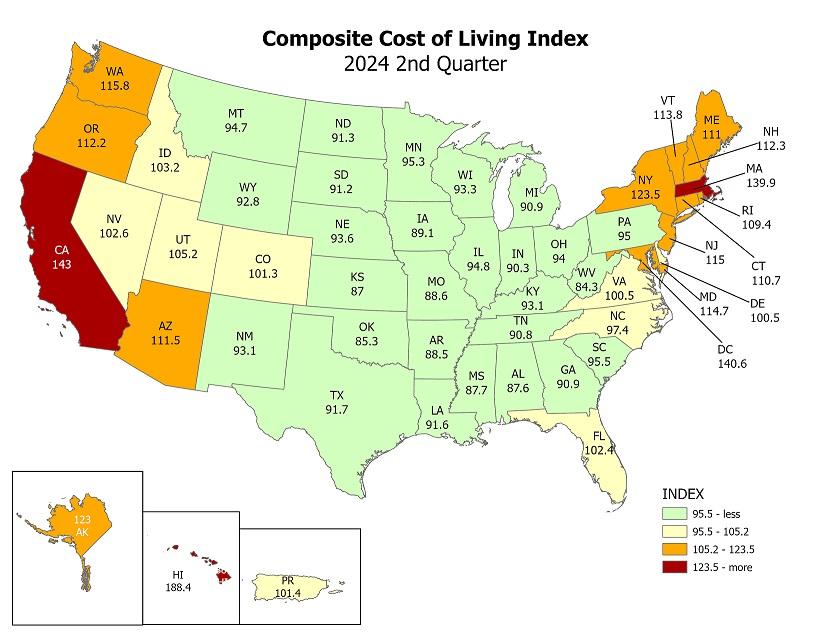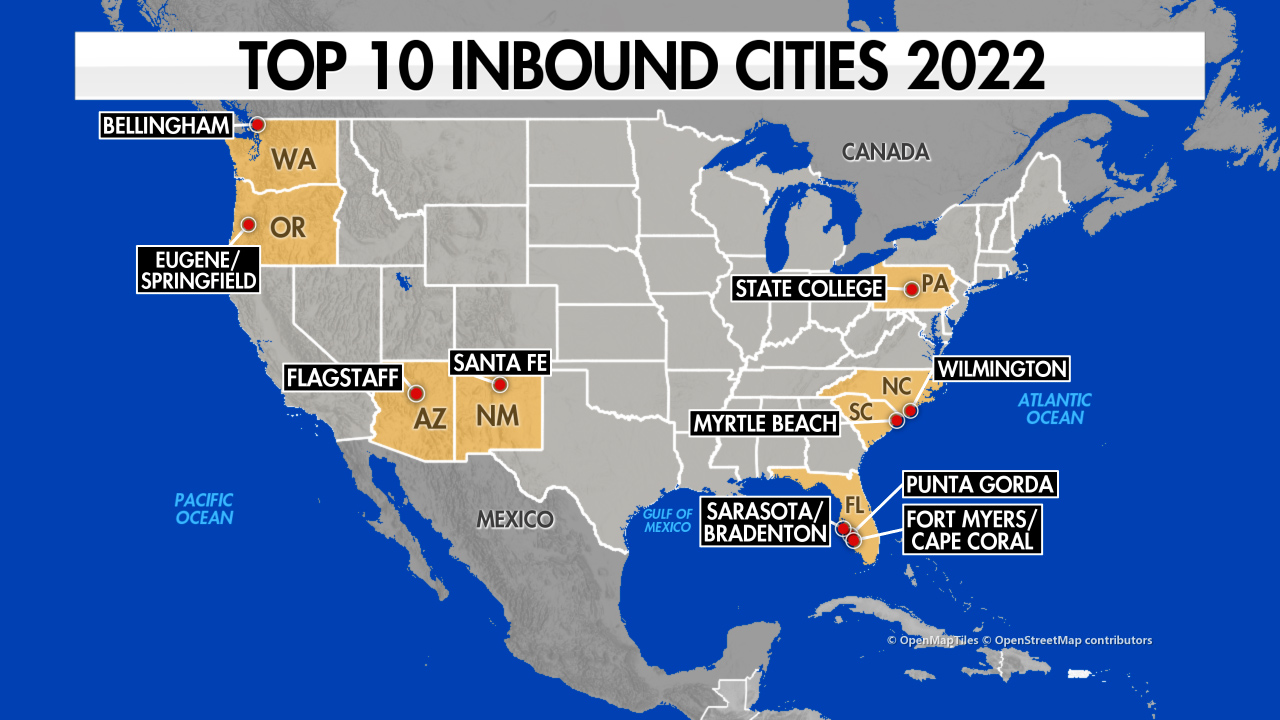Moving From Texas To Wisconsin
Are you considering a move from the Lone Star State to America's Dairyland? If so, you're not alone. Every year, thousands of people make the transition from Texas to Wisconsin, drawn by the state's natural beauty, outdoor recreational opportunities, and strong economy. However, it's essential to be prepared for the significant cultural and environmental changes that come with trading in cowboy boots for snow boots. From navigating the differences in climate and cost of living to finding new job opportunities and building a social network, this article will provide you with the essential guide to making a successful move from Texas to Wisconsin.

Preparing for a Smooth Transition: Moving from Texas to Wisconsin
Moving from Texas to Wisconsin can be a significant change, especially when it comes to climate, culture, and lifestyle. To ensure a smooth transition, it's essential to plan and prepare for the differences you'll encounter in the Badger State.
Weathering the Change: Climate Differences
One of the most notable differences between Texas and Wisconsin is the climate. Texas is known for its hot summers and mild winters, while Wisconsin experiences cold winters and mild summers. Be prepared for: Cold winters: Wisconsin's average winter temperature is around 24°F (-4°C), with significant snowfall. Mild summers: Wisconsin's average summer temperature is around 77°F (25°C), with moderate humidity.
Cost of Living: What to Expect
The cost of living in Wisconsin is generally lower than in Texas, especially when it comes to housing and transportation. However, you may notice differences in: Housing costs: The median home price in Wisconsin is around $190,000, compared to Texas's median home price of around $240,000. Taxes: Wisconsin's state income tax rate is around 6.27%, while Texas has no state income tax.
Culture Shock: Adapting to the Midwest
Wisconsin's culture is deeply rooted in its Midwestern heritage, which may differ from the Southern charm of Texas. Be prepared for: Friendly locals: Wisconsinites are known for their warm hospitality and welcoming nature. Outdoor activities: Wisconsin offers plenty of opportunities for outdoor recreation, such as fishing, hiking, and skiing.
Job Market and Economy
Wisconsin's economy is diverse, with major industries in manufacturing, healthcare, and tourism. However, you may notice differences in: Job opportunities: Wisconsin's unemployment rate is around 3.2%, compared to Texas's rate of around 3.4%. Industry trends: Wisconsin is a leader in industries like paper production and dairy farming.
Getting Settled: Logistics and Essentials
Once you've made the move, it's essential to get settled quickly. Be sure to: Update your driver's license: You'll need to obtain a Wisconsin driver's license within 30 days of establishing residency. Register your vehicle: Wisconsin requires vehicle registration within 30 days of moving to the state. Find healthcare providers: Research and find healthcare providers that meet your needs in Wisconsin.
| Category | Texas | Wisconsin |
|---|---|---|
| Average Temperature (Winter) | 48°F (9°C) | 24°F (-4°C) |
| Average Temperature (Summer) | 94°F (34°C) | 77°F (25°C) |
| Median Home Price | $240,000 | $190,000 |
| State Income Tax Rate | 0% | 6.27% |
Is it cheaper to live in Texas or Wisconsin?

The cost of living in Texas versus Wisconsin depends on various factors, including housing, food, transportation, and utilities. Here's a breakdown of the costs to help you decide:
Cost of Housing
Housing costs are a significant factor in determining the overall cost of living. Texas has a lower median home price of around $240,000, compared to Wisconsin's median home price of around $280,000. However, the average rent in Texas is higher, with a one-bedroom apartment costing around $1,150 per month, whereas in Wisconsin, it's around $940 per month.
Taxes and Insurance
Taxes and insurance costs can also vary significantly between the two states. Texas has no state income tax, which can be a significant advantage for individuals. However, property taxes are higher in Texas, with an average effective property tax rate of 1.86%. Wisconsin, on the other hand, has a state income tax rate of around 6.27%, but lower property taxes, with an average effective property tax rate of 1.76%. Insurance costs, such as health and auto insurance, are relatively similar in both states.
Food, Transportation, and Utilities
Other living expenses, like food, transportation, and utilities, also vary between Texas and Wisconsin. Texas has lower grocery prices, with milk costing around $2.50 per gallon, compared to around $3.20 per gallon in Wisconsin. Wisconsin, however, has lower transportation costs, with gas prices averaging around $2.50 per gallon, compared to around $2.70 per gallon in Texas. Utility costs, such as electricity and water, are relatively similar in both states.
- Housing costs: Texas has lower median home prices, but higher average rent.
- Taxes and insurance: Texas has no state income tax, but higher property taxes; Wisconsin has a state income tax, but lower property taxes.
- Food, transportation, and utilities: Texas has lower grocery prices, while Wisconsin has lower transportation costs.
Is moving to Wisconsin a good idea?

Is Moving to Wisconsin a Good Idea?
Moving to Wisconsin can be a good idea for many reasons. The state offers a unique blend of natural beauty, outdoor recreation opportunities, and a strong economy. Wisconsin is known for its picturesque countryside, rolling hills, and over 15,000 lakes, making it an ideal destination for nature lovers and outdoor enthusiasts. Additionally, the state has a strong economy, with major industries in manufacturing, healthcare, and agriculture.
Pros of Moving to Wisconsin
Some of the advantages of moving to Wisconsin include:
- Natural Beauty: Wisconsin is home to some of the most beautiful natural landscapes in the country, with numerous state parks, forests, and lakes offering endless opportunities for outdoor recreation.
- Affordable Cost of Living: Compared to other states in the Midwest, Wisconsin has a relatively low cost of living, making it an attractive option for those looking to relocate.
- <strongExecutionContext Economy: The state has a strong economy, with major industries in manufacturing, healthcare, and agriculture, providing a range of job opportunities.
Cons of Moving to Wisconsin
However, there are also some potential downsides to consider:
- Harsh Winters: Wisconsin is known for its cold and snowy winters, which can be challenging for those who are not used to extreme cold weather.
- Limited Job Opportunities in Certain Industries: While Wisconsin has a strong economy, some industries may have limited job opportunities, particularly in urban areas.
- Limited Cultural Diversity: Compared to other states, Wisconsin has a relatively homogeneous population, which may not offer the same level of cultural diversity as other parts of the country.
Best Places to Live in Wisconsin
Some of the best places to live in Wisconsin include:
- Madison: The state capital is known for its vibrant cultural scene, excellent schools, and outdoor recreation opportunities.
- Milwaukee: The state's largest city offers a range of cultural attractions, a thriving arts scene, and a strong economy.
- <strong-La Crosse: This charming city in western Wisconsin offers a scenic location, outdoor recreation opportunities, and a strong sense of community.
How much would it cost to move from Texas to Wisconsin?
The cost of moving from Texas to Wisconsin can vary greatly depending on several factors, including the distance, weight, and type of items being moved, as well as the services required. On average, a long-distance move from Texas to Wisconsin can cost anywhere from $2,000 to $5,000 or more.
Distance and Weight
One of the most significant factors affecting the cost of a move is the distance between the two locations. Texas and Wisconsin are approximately 1,100 miles apart, which makes it a long-distance move. The weight of the items being moved is also a crucial factor, as it directly affects the fuel consumption and labor required during the move. Here are some estimated costs based on the weight of the items:
- A small move (less than 2,000 pounds): $2,000 - $3,000
- A medium-sized move (2,000-4,000 pounds): $3,000 - $4,000
- A large move (4,000-6,000 pounds): $4,000 - $5,000
Type of Move
The type of move you choose can also impact the overall cost. There are several options to consider, including:
- Full-service move: This type of move includes packing, loading, transporting, and unloading your items. It's the most expensive option, with costs ranging from $4,000 to $6,000 or more.
- Partial move: This type of move involves the mover packing and loading your items, but you'll handle the transporting and unloading. Costs can range from $2,000 to $4,000.
- DIY move: If you choose to rent a truck and move your items yourself, costs can be significantly lower, ranging from $1,000 to $2,000.
Additional Services
Some movers may offer additional services, such as packing materials, storage, or special handling for fragile or oversized items. These services can add to the overall cost of the move. Here are some estimated costs for these services:
- Packing materials: $100 - $500
- Storage: $100 - $500 per month
- Special handling: $100 - $500 per item
What is the best state to move to from Texas?

The Lone Star State is a great place to call home, but sometimes Texans may find themselves looking for a change of scenery or a new adventure. When considering a move from Texas, it's essential to think about what you're looking for in a new state. Do you want a more relaxed pace of life, a lower cost of living, or access to new job opportunities? Whatever your reasons, here are some factors to consider when deciding which state to move to from Texas.
Climate and Geography
Texas is known for its vast open spaces and diverse geography, ranging from deserts to coastlines. If you're looking for a similar climate and geography, you might consider the following states:
- New Mexico, with its high desert landscapes and mild winters, is a great option for those who love the Texas desert.
- Arizona, with its red rock formations and dry climate, offers a similar Southwestern experience.
- Oklahoma, with its rolling hills and prairies, provides a more gentle climate and landscape.
Cost of Living
The cost of living in Texas is relatively low compared to other states, but if you're looking for an even more affordable option, consider the following states:
- Oklahoma, with its low housing costs and affordable living expenses, is an excellent choice for those on a budget.
- Arkansas, with its low taxes and affordable housing, offers a great quality of life at a lower cost.
- Tennessee, with its low cost of living and no state income tax, is an attractive option for those looking to save money.
<h3.Job Opportunities and Economy
Texas is known for its thriving economy and diverse job market, but if you're looking for new opportunities or a specific industry, consider the following states:
- California, with its thriving tech industry and diverse job market, is an excellent choice for those in tech or looking for a new challenge.
- Florida, with its growing healthcare and tourism industries, offers a range of job opportunities in these fields.
- Washington, with its strong tech industry and thriving startup scene, is an excellent option for those in tech or looking to start their own business.
FAQ
What are the main differences in cost of living between Texas and Wisconsin?
When considering a move from Texas to Wisconsin, one of the biggest factors to take into account is the cost of living. Texas is known for being a relatively affordable state, with lower taxes and a lower overall cost of living compared to many other states. Wisconsin, on the other hand, has a slightly higher cost of living, with higher taxes and a more expensive housing market. However, Wisconsin also offers a higher average salary, which can help offset the increased cost of living. Additionally, Wisconsin has a lower unemployment rate, which can provide more job security and opportunities. Ultimately, the decision of which state is more affordable will depend on individual circumstances and priorities.
How do the climates of Texas and Wisconsin compare?
For those who are accustomed to the warm southern climate of Texas, the move to Wisconsin can be a bit of a shock. Wisconsin has a continental climate, with cold winters and mild summers. The state experiences a significant amount of lake effect snow, particularly in the northern and eastern regions, which can make for harsh winter conditions. In contrast, Texas has a semi-arid climate, with hot summers and mild winters. While Wisconsin's climate may take some getting used to, the state's natural beauty and outdoor recreational opportunities make it a great choice for those who enjoy winter sports and activities.
What are the cultural differences between Texas and Wisconsin?
Texas and Wisconsin have distinct cultural identities that are shaped by their unique histories, geography, and people. Texas is known for its cowboy culture and southern hospitality, with a strong emphasis on individualism and independence. Wisconsin, on the other hand, has a more Midwestern culture, with a strong sense of community and neighborliness. The state is also famous for its German heritage, which is reflected in its cuisine, festivals, and traditions. While both states have their own unique cultural attractions, Wisconsin's more laid-back and family-friendly atmosphere may be a welcome change for those looking for a slower pace of life.
How do the job markets in Texas and Wisconsin compare?
Both Texas and Wisconsin have strong job markets, with a range of industries and opportunities. Texas is a hub for energy and technology, with major cities like Houston and Austin driving growth and innovation. Wisconsin, on the other hand, has a strong manufacturing sector, with major companies like Harley-Davidson and Johnson Controls calling the state home. Additionally, Wisconsin is a leader in agriculture, with a thriving dairy industry and a strong presence of food processing companies. While Texas has a slightly higher unemployment rate, Wisconsin's job market is more diverse, with opportunities in a range of fields.